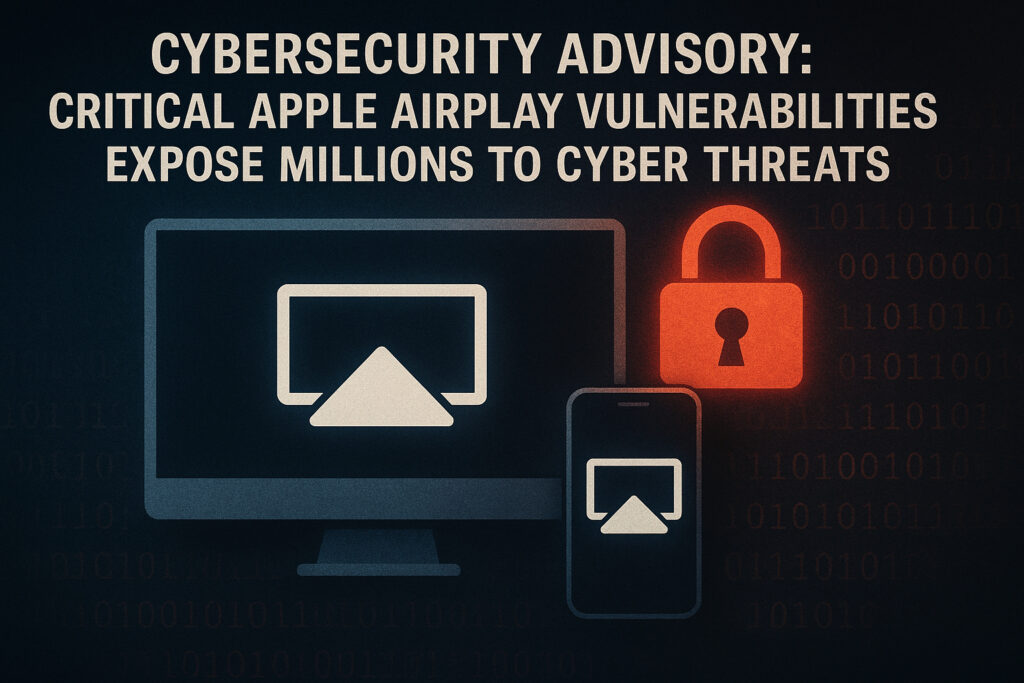
A recent discovery by cybersecurity firm Oligo Security has unveiled a series of critical vulnerabilities in Apple’s AirPlay protocol and SDK, collectively termed “AirBorne.” These flaws pose significant risks to a vast array of devices, including iPhones, iPads, Macs, Apple TVs, and numerous third-party gadgets like smart speakers, TVs, and CarPlay systems.
The AirBorne vulnerabilities encompass several severe security issues:
These vulnerabilities are concerning because they can be exploited over local Wi-Fi networks or peer-to-peer connections, making devices susceptible even without direct internet exposure.
Successful exploitation could allow malicious actors to:
Given that Apple reports over 2.35 billion active devices globally, and with millions of third-party AirPlay-enabled gadgets in circulation, the scope of potential impact is vast.
Apple has acknowledged these vulnerabilities and released patches across its platforms, including iOS, macOS, iPadOS, watchOS, tvOS, and visionOS. However, a significant concern remains:
Third-Party Devices: While Apple has provided updates for third-party manufacturers, it does not control their distribution. This means many third-party devices may remain unpatched, leaving users vulnerable.
Oligo Security emphasizes that the risk persists, especially for devices that are rarely updated or lack robust security measures.
Protective Measures for Users
To mitigate potential risks, users are advised to:
The AirBorne vulnerabilities emphasize the importance of proactive cybersecurity measures, especially in an era where interconnected devices are common. While Apple has taken steps to address these issues, users must remain vigilant, ensuring their devices are updated and secured against potential threats.
Discover and share the latest cybersecurity trends, tips and best practices – alongside new threats to watch out for.

In cybersecurity, not all attacks happen through fancy malware or zero-day exploits. Some of the most effective...
Read more
The rapid rise of generative AI has unlocked enormous promise, but it’s also accelerating the arms race in...
Read more
Newly discovered Android banking Remote Access Trojan (RAT), dubbed Klopatra, has compromised more than 3,000...
Read moreGet sharper eyes on human risks, with the positive approach that beats traditional phish testing.
